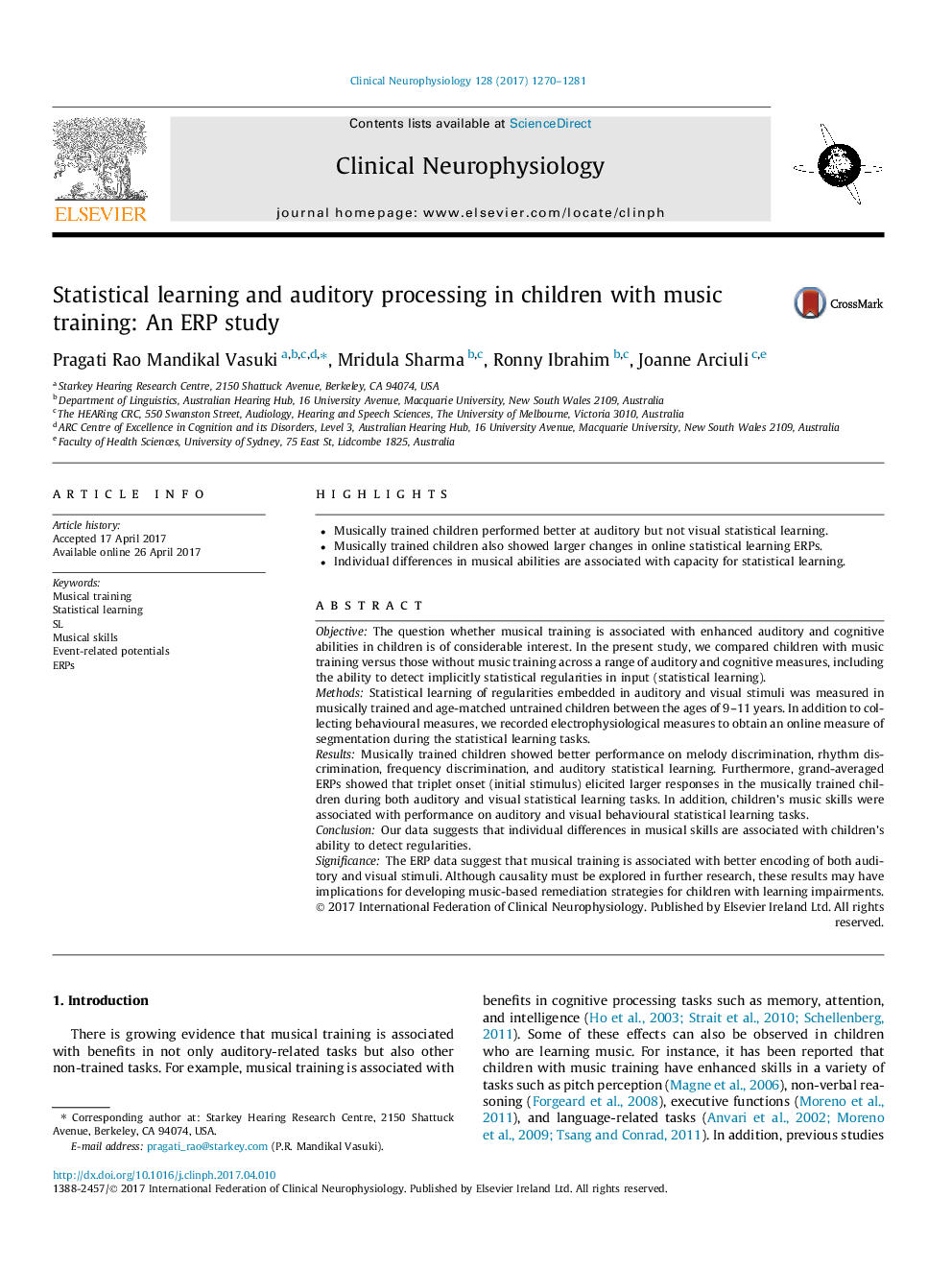| Article ID | Journal | Published Year | Pages | File Type |
|---|---|---|---|---|
| 5627843 | Clinical Neurophysiology | 2017 | 12 Pages |
â¢Musically trained children performed better at auditory but not visual statistical learning.â¢Musically trained children also showed larger changes in online statistical learning ERPs.â¢Individual differences in musical abilities are associated with capacity for statistical learning.
ObjectiveThe question whether musical training is associated with enhanced auditory and cognitive abilities in children is of considerable interest. In the present study, we compared children with music training versus those without music training across a range of auditory and cognitive measures, including the ability to detect implicitly statistical regularities in input (statistical learning).MethodsStatistical learning of regularities embedded in auditory and visual stimuli was measured in musically trained and age-matched untrained children between the ages of 9-11Â years. In addition to collecting behavioural measures, we recorded electrophysiological measures to obtain an online measure of segmentation during the statistical learning tasks.ResultsMusically trained children showed better performance on melody discrimination, rhythm discrimination, frequency discrimination, and auditory statistical learning. Furthermore, grand-averaged ERPs showed that triplet onset (initial stimulus) elicited larger responses in the musically trained children during both auditory and visual statistical learning tasks. In addition, children's music skills were associated with performance on auditory and visual behavioural statistical learning tasks.ConclusionOur data suggests that individual differences in musical skills are associated with children's ability to detect regularities.SignificanceThe ERP data suggest that musical training is associated with better encoding of both auditory and visual stimuli. Although causality must be explored in further research, these results may have implications for developing music-based remediation strategies for children with learning impairments.
